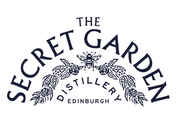The Secret Garden Distillery anticipated the overhaul of the alcohol duty system, that took effect on 1 August 2023, with some trepidation. This reform revolutionises the taxation structure for alcoholic beverages by linking duties to alcohol by volume (ABV) and whilst the Government has touted it as a simplification of the system and it is good news for lower-alcohol drinks and sparkling wines, it is yet another substantial blow to the spirits industry.
Under the new regulations, all alcoholic drinks are taxed based on their alcohol content, with higher rates applied to beverages boasting a higher ABV. The Government has argued that this change in duty system is part of their strategy to foster a more balanced market - ensuring that consumers can make informed choices regarding their alcohol preferences.
However, the main effect will be to raise prices for spirits consumers.
This tax is almost impossible for spirits producers to absorb. Produced at higher ABVs, the tax affects the UK spirits industry particularly. Coming, as it does, after 18 months of rising prices as the hospitality sector struggles to recover after Covid and so affecting on-trade sales plus high inflationary pressures in raw materials including the spiralling energy costs for businesses and overall a sluggish economy, this change in the duty is just another burdensome expense to producers already struggling. Even the large producers are smarting under the ever-burgeoning weight of unforeseen costs and the effect on small independent producers could be catastrophic to the industry.
With great regret, the Secret Garden Distillery directors have decided to increase their prices to match the oncoming price increase of duty. The business to date has had a strong resistance to increasing their prices although their cost base has increased substantially throughout the past 18 months. The Distillery’s gins have always had a premium price point as producing hand-crafted gins from their own Gardens is not cheap. The business also prides itself on paying all its staff a living wage but rising costs in raw materials, rising costs in energy and rising interest rates affecting servicing Covid loans taken out to ensure the business was still here after the pandemic all takes its toll. Co-Director, Imogen Armstrong explains the Board’s decision, “As a business we have tried our hardest to keep our current prices, and to date we have absorbed all the increasing costs, but this duty reform adds effectively another 10% increase to our cost base. It’s a real blow to the business and we have to increase our prices to survive. We hope our customers will understand and just hope it’s enough to keep the business ticking over through this downturn.”
Over and above the cost-of-living and interest rate increases in the past year, many spirit brands have had issues relating to the war in Ukraine as export problems with grain has had a knock-on effect on the price of ethanol. However, not only has ethanol had a sourcing issue but so has glass. This is a highly energy intensive product and supply chains in Europe have still not recovered from the pandemic. These problems causes price increases at every stage.
Diageo, the world’s biggest spirits group, last week branded the rise as a stealth tax ‘dressed up as relief’ and their chief executive Debra Crew noted that despite the representations of the large producers to the Government, “it is a substantial hike and we were disappointed by it”. The Times reported that the total tax on a bottle of spirits will go up by 90p and for wine about 44p. As Armstrong explains “You hear about cost-of-living crisis all the time and as an individual I am living it but the business can’t take any more price shocks and although we don’t want to be contributing to our customers cost-of-living rises we just want to survive these headwinds on our industry.”







